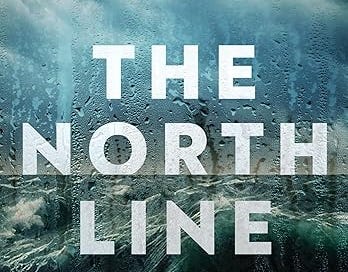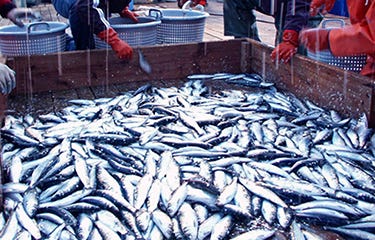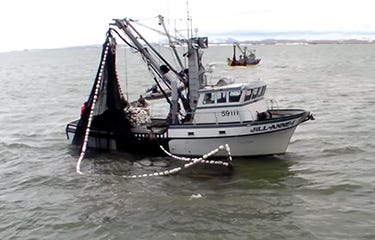What makes a book compelling? Join me in developing our “Eyes and Ears” for finding compelling stories.
Ever had a job that was both miserable and yet character-building? A job you could look back on and say with a hard-bitten pride, “Yeah, I did that,” and think to yourself, Never again.
As a college student in Massachusetts, Matt Riordan worked summers in Alaska’s fishing industry. Riordan’s keen eye noticed the contrasts, both stark and subtle, between the campus he’d left behind and the rough blue collar fishing environment, in a place with no roads in or out.
Graduating from college, he didn’t want to work on Wall Street and similar environs, so he returned to Alaska for several seasons. Riordan got the fishing bug out of his system, graduated law school and became an accomplished trusts and estates litigator in New York. In our conversation, the amiable Riordan explained these Alaskan stints planted the seeds of a future novel.
Now, years later, we’re treated to his entertaining, engaging debut, The North Line. Few authors today write novels about blue collar workers battling nature; much of modern literature revolves around urban angst. Riordan immerses the reader not just in one of the last frontiers, but living and working in dangerous conditions. All to put food on our tables.
Adam, a senior at a small East Coast private college, loses his scholarship due to poor choices and needs fast cash to pay the tuition for his last year. He’s a fish out of water at his college, as his classmates would ridicule him for having to work so hard with his hands.
Adam meets his hard-charging Captain Nash, coming to pluck him off a gravel beach in a skiff and take him to the fishing boat. Nash, upon learning Adam is a green deckhand and knows nothing of fishing, is unhappy and does his best to dissuade him:
You know what, right here I’m going to do you a solid, so listen close. As of this afternoon, they’re pulling green herring out of Togiak [Alaska], so I really got no time to go hunting up another man, but somebody ought to warn you. The truth is this work ain’t for everybody. Probably a lot worse than you think. This year especially. The price the Japanese are post for reds is shit, and in the boatyard they’re already talking strike. You got this last chance to back out. Once you get on the boat it’s too late, and I don’t like the idea of dragging you out there without some warning.
Duly warned of crashing market conditions and dissatisfaction of other fishermen, Adam weighs his options, and because he needs the money, decides to work on the boat. A lacrosse player, he’s used to hard work. But first, he has to get on the skiff taking him to the fishing boat.
“Push us off,” said Nash, stepping into the skiff [beached on the gravel] . . .
Adam threw his bag into the bottom of the skiff and put his palms on both sides of the bow point. The aluminum was cold. He dropped to a familiar position, one he had taken before a hundred weight sleds, glad to be tasked with something he knew he could do well. His shoulder to the bow, he grunted and shoved. The gravel released the skiff, and it shot away over the water. He held on and stepped after the skiff until he was thigh-deep. Current seized the stern and the skiff spun. Adam couldn’t quite catch up, and he didn’t dare let go, so he hopped along, trying to swing a leg in. Nash watched with his brow furrowed. They drifted quickly and spun with the current until Adam felt the toe of his boot skip along the bottom. In seconds, he was hanging from the bow of the skiff as they drifted away from the shore. His mouth was open, and he was blinking. Just like that, the water had him, and god it was cold. Living water, brown with silt, slid under his T-shirt, unwelcome and intimate, and wrapped around his lungs and heart. His breathing stopped being automatic. The air rushed out of him and he refilled it in shallow huffs.
“What in the actual fuck are you doing?” said Nash. “That’s the Bearing fucking Sea right there. You don’t go swimming in it. Get in for Christ’s sake.”
Not the best first impression to make with the crew one will be working and living with in unforgiving conditions. Riordan writes a tale with shades of Jack London as Adam is driven, not just by his needs for money, but to stay alive, to find his place among the crew, indeed find his place in the world.
Even though it’s his debut, Riordan writes with the skill and polish of an established writer, which he is, having published short stories and worked hard to hone his craft. He’s also a careful observer of people reacting to their various circumstances, some of whom are outright evil, jeopardizing the lives of others to pursue their own self interests. The tension ratchets as Adam learns that the crew can’t trust getting paid, which conflicts with his whole reason for sticking it out. Adam is forced to make choices all throughout the novel, each one with higher stakes than the last. Readers wonder if Adam, soon to be a college graduate, can maintain his civilized bearing or if he succumbs to the same primal instincts shared by the fish he’s seeking to land in the boat.
The North Line is a heck of a read.
You’ll be glad to know Riordan is working on his second novel, a standalone, historic work. I can’t wait.
All the Best,
Geoff
If you enjoyed this post, please hit the heart “❤️” so others can find it. It’s at the bottom and at the top.







Geoff- It certainly looks like Riordan drew upon his stint with the Alaskan fishing industry. Definitely something I wasn’t expecting to learn today. Thanks!
A friend told me about his summer job once, scraping barnacles off hulls in a boatyard. He had only started this thankless job when a speck of barnacle landed in his eye. He stopped to rub his eye, not leaving his post, when a passerby made a snide comment about not being tough enough for the job. That was it. He quit the job and never looked back, only to tell me the story. He'd been there, done that. Dirty Jobs, Mike Rowe would say. The world does lack a lot of love, sometimes.